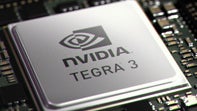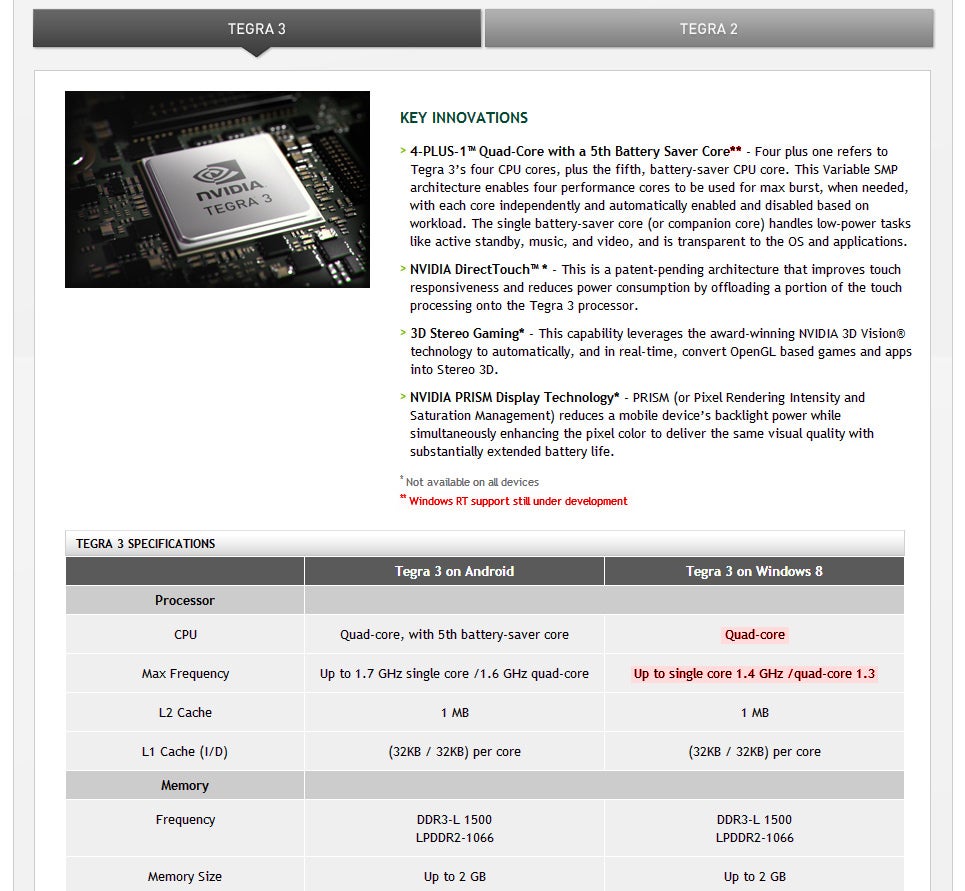Windows RT is not yet optimized for Tegra 3 chips

The Tegra 3 SoC by NVIDIA can be found under the hood of many Android smartphones and tablets. Even a video game console – the Ouya, which got Kickstarted not long ago, is powered by this potent quad-core piece of silicon. Microsoft also chose a Tegra 3 chip to be the heart and brains of its Windows RT Surface tablet.
However, the Microsoft Surface is just not making the most of its Tegra 3 processor, and the device's hardware is not to blame. Rather, we're dealing with a lack of software optimization, judging by the looks of it. In particular, it is stated on NVIDIA's web page that Windows RT still does not know how to distribute the workload efficiently between the SoC's four performance cores and the fifth, battery-saving core.

Still, we are pretty confident that Microsoft will sort this out soon. As it is said on NVIDIA's page, full Windows RT support for all of Tegra 3's advanced features is still under development, meaning that the issue will most likely be addressed in a future software update. Until then, you are free to distract yourself with a game of Minesweeper.
source: NVIDIA via Microsoft News









Things that are NOT allowed: